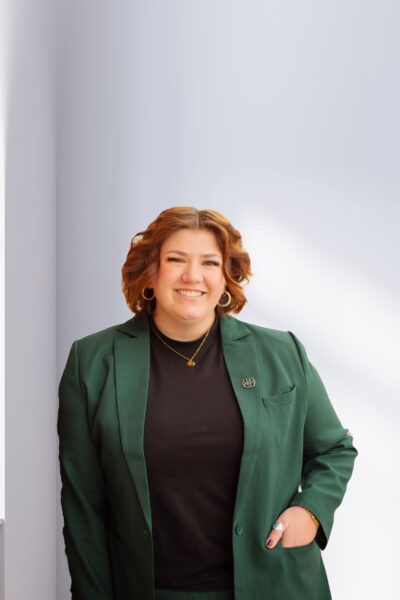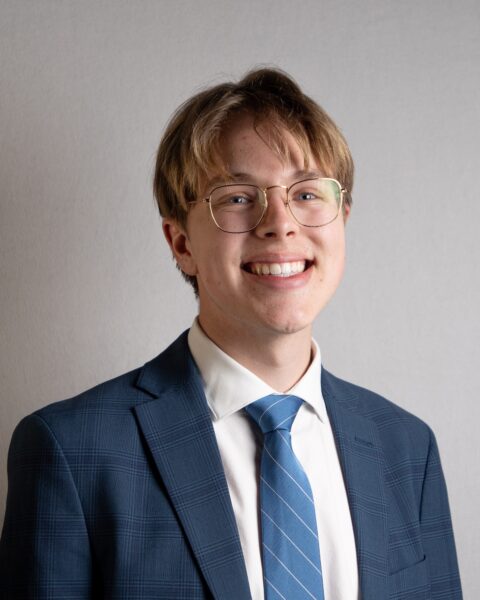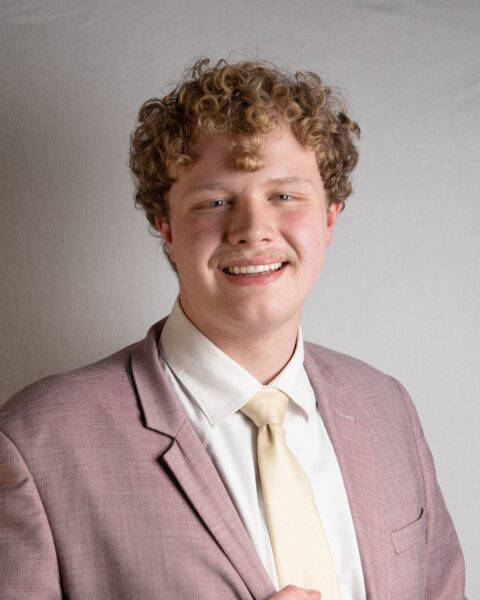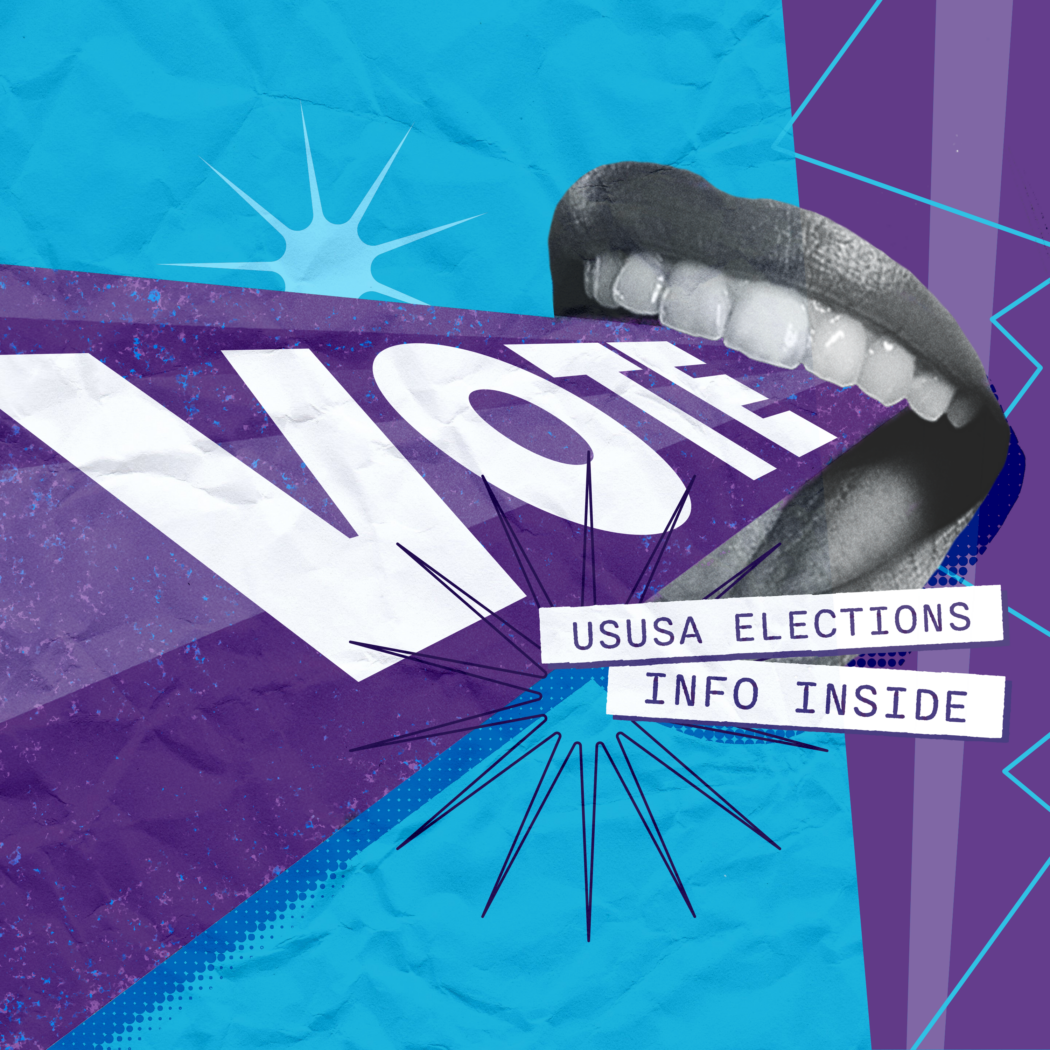Meet the candidates: Student Advocate Vice President

Myla Millet
Introduce yourself by your name and what position you’re running for and then what year you are in school, what you’re studying and where you’re from.
Hi, I’m Myla Millet. I’m from Salem, Utah. I’m a junior. I’m studying economics and finance, and I’m running for student advocate VP.
How will you communicate with students who feel underrepresented at USU?
By listening. You communicate by going to them. You need to know where someone’s at in order to hear them.
What do you see as the most important part of being the student advocate VP?
Like I said, it’s putting students first. The job of the student advocate is to amplify what students want and what they need.
How will you extend your support and advocacy to students at USU statewide campuses and regions?
By reaching out to the people there, and I have friends who are on the leadership teams out there, and I’ve already been communicating with them and seeing what is most important to them, and what’s important is that they want more options, and they want just to have a seat at the table and facilitating a table for them to come speak at.
If you are not elected, how will you continue to be involved at USU?
I hope to be on the GRC again. This year, I’ve been serving as a director. I really am passionate about advocacy, and I have been a peer mentor, and I’d love to continue doing that.
What was the first moment you remember feeling like an Aggie?
For me, I would say the first time I was there in the Spectrum when the Aggies won a basketball game, screaming “The Scotsman” with other people after we wrecked another team.

Ronan Spencer
Introduce yourself by your name and what position you’re running for and then what year you are in school, what you’re studying and where you’re from.
Hi, I’m Ronan Spencer. I’m a political science and economics student here at Utah State University. I’m a sophomore. I am from Draper, and I’m running for student advocate vice president.
How will you communicate with students who feel underrepresented at USU?
Yeah, so that’s one of the main goals of my platform — is I want to use student polling and research to directly hear what the students are saying. I think that if we go to university administration and government officials with hard data saying that this percent of students care about an issue, I think that we could actually see change. So, I plan on distributing student polls through myUSU as well as emailing lists because that’s one of the duties of the student advocate vice president. I’m really passionate about it, and I really do love data, and so that’s the type of thing that we’re going to be seeing if I get into office.
What do you see as the most important part of being the student advocate vice president?
Yeah, so I think the most important part of being the student advocate vice president is actually representing student voices, not what people think the student voices are. So, this means that, you know, you really have to represent the students, and you have to understand student opinion to a tee, and so, I think that the best way to do that is by directly asking students. I think that we need to be walking around campus asking students opinions on political issues and other things, so we can truly understand what’s happening with the student population, but I also think that it’s important to reach out to media to represent student issues as well. I think that the most important thing about the student advocate is that they give students a voice to some places where students usually don’t have a voice, such as higher levels of government or higher levels of university administration.
How will you extend your support and advocacy to students at USU statewide campuses and regions?
Yeah. So, I really like that question, and I really care about the statewide campuses. Over the summer, I was a camp counselor at USU Eastern. I was a camp counselor for their federal grant program called Upward Bound. So, I helped disadvantaged students in their path to college, and that was something that I was really passionate about. It was really rewarding to me, but I also got to understand some of the, you know, issues that USU Eastern is facing as well and for our other statewide campuses. I’m open to visit them and see what they need help with, and I will advocate for them.
If you are not elected, how will you continue to be involved at USU?
Yeah, so for these past two years, I’ve already made a big effort into advocating for the students. I’ve written five editorials to publications like The Salt Lake Tribune and the Standard-Examiner. I’m currently a legislative reporter for Utah Public Radio, and there’s just a lot of student issues that I feel like are not being talked about. So, that’s my goal — is that I want to help continue that, and so, if I don’t get elected, I’ll continue doing the same thing that I do, and I’ll continue representing the students. I mean, last semester, we were able to increase voter registration numbers by 1,256% with the civic engagement department of the Institute of Government Politics. So, that was something that I was able to head up, and that was something that was really exciting for me, but those are just some examples of the things that I will continue to do, even if I don’t get elected.
What was the first moment you remembered feeling like an Aggie?
I think the first moment that I felt like I was truly an Aggie was when I went to PoBev, and this was exciting for me both because I got to help run it because I’m on USUSA events, but I also got to see some of the unique musical talent we had and some of the amazing poetry, and truly, just the vibe that night was really good. It was really chill, and everybody felt like they were connected in one thing, and that one thing was appreciating art and seeing what we have in store here at Utah State University, and so, that really touched my heart, and it was something that was really fun to see. So, that was definitely a moment when I realized that I was an Aggie.

Colin Hastings
Introduce yourself by your name and what position you’re running for and then what year you are in school, what you’re studying and where you’re from.
My name is Colin Hastings. I’m running for student advocate vice president. I’m a junior in political science with minors in communications, anthropology and sociology, and I’m about 15 minutes north from Logan. I was born and raised in Smithfield, Utah.
How will you communicate with students who feel underrepresented at USU?
I think the biggest way we need to communicate with students who feel underrepresented here is through updating the MyVoice program. MyVoice is something that falls under the student advocate. It’s a way for students to relay their concerns and their issues, especially with the university. But the problem is, I was in student government last year, and we just don’t get that many MyVoices. So obviously, there’s something wrong with our program. I think what we need to start doing is, instead of expecting students to come to us, we need to meet the students where they’re at and start going to them to collect the issues that they feel most strongly about or underrepresented.
What do you see as the most important part of being the student advocate vice president?
I think, without a doubt, the most important part of being the student advocate vice president is being kind of the student lobbyist. So, a lobbyist is someone who goes to Congress or any kind of politician or political body and says, ‘This is what my constituents want. This is how we think you should vote,” this kind of stuff and just kind of gives them their information. So, I think the biggest thing is, while the university has their own Government Relations Council and expresses their interest to the legislature, we need a strong voice on the students’ behalf because sometimes the students and the university’s interests don’t align. So, we need a very strong voice to go down to the Utah Legislature and to say, “This is what the students need. This is what is important to the students, and this is why this is bad for the students.” Same thing goes for our local and city councils as well, like Logan Council and Cache County Council. But also, because we’re a statewide system, places like Blanding and Price and all these other regions — we need to be working with their local city councils as well.
How will you extend your support and advocacy to students at USU’s statewide campuses and regions?
Well, USU is the only land-grant institution in Utah, and we’re one of only two R1 institutions in the state. So, those things are both very important when it comes to the statewide system. For one, we conduct a lot of research at some of our campuses and centers like Vernal. That’s a great research place, as well as it’s a way for us to connect and give education to a lot of people who wouldn’t otherwise have access to it. So, places like Nephi — we have a campus in Nephi where people can go, and they can take their tests, and they can do school. It’s a way for people who would not be traditional students to be able to get an education that they otherwise wouldn’t have. So, it’s extremely important that we continue our tradition of being a land-grant institution and caring for those campuses, and in fact, up our support for those campuses as well.
If you are not elected, how will you continue to be involved at USU?
I’ve always been involved at USU. I’m the longest-serving member of the student fee board. I’ve been on committees like Activities Committee or CHaSS Council and all these other things, and I always will be. I ran for election last year, and I did not get it. And what did I do? I immediately started applying for every other council that I could to make sure that I’m always going to be providing and trying to help students here at USU, whether I’m in a position or not.
What was the first moment that you remember feeling like a true Aggie?
I’m someone who likes to try to contribute and help to the best of my ability, and it honestly is what makes me feel most connected to things. So the first moment I truly felt like an Aggie was when my first week of school, I applied to Humanities and Social Sciences Council, a super small thing that most people will never hear of, but I got on, and it just felt like I was contributing — that I had the ability to do something for students and to help students and to build something here, and that ability to build and contribute just helped me feel so close to the university and kind of became my jumping-off point for all that I’ve done here.

